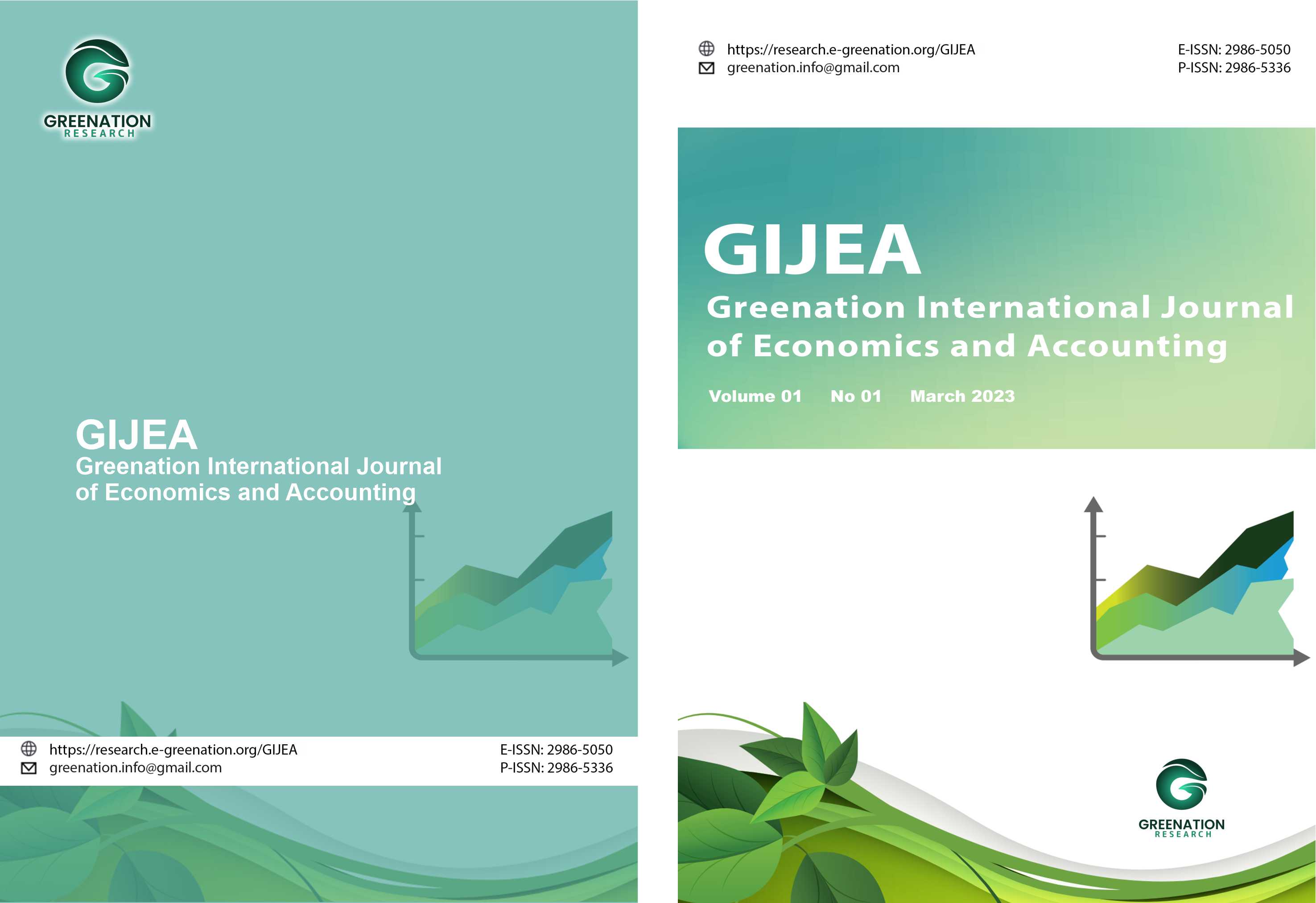Integrating Islamic Values and Industrial Technology in Accounting Education: A Thematic Comparison of Student Competencies at Umbandung and Unikl
DOI:
https://doi.org/10.38035/gijea.v3i2.453Keywords:
Accounting Competency, Islamic Values, Industrial Technology, Curriculum Development, Qualitative StudyAbstract
Globalization and digital transformation have reshaped the competency demands of the accounting profession. This study aims to explore competency gaps among accounting students from two institutions with different curricular orientations: Universitas Muhammadiyah Bandung (UMBandung), which emphasizes Islamic values, and Universiti Kuala Lumpur (UniKL), which focuses on industrial technology. A qualitative case study approach was employed, involving in-depth interviews with 15 final-year students, analyzed thematically. The findings reveal significant thematic contrasts. UMBandung students demonstrated strong ethical internalization and sustainability awareness grounded in values, yet showed limited proficiency in accounting software, professional presentation, and cross-cultural exposure. In contrast, UniKL students exhibited strong mastery of industrial technology tools (e.g., Structured Query Language (SQL)) and professional communication skills, but their understanding of ethics remained procedural and lacked reflective depth. Both institutions also lacked sufficient coverage of international taxation and global accounting practices. The study highlights a pattern wherein value-based curricula tend to strengthen personal integrity, while industry-based curricula emphasize technical job readiness. The key contribution of this research lies in offering empirical insights for developing a more holistic and contextually relevant accounting curriculum in Southeast Asia one that integrates local values with global industry needs to produce ethical, adaptive, and professionally competent accountants.
References
Abdullah, A., Nik Wan, N. Z., Razak, S., San, S., Saidi, N., Hussin, S. N. A., & Tumiran, S. D. (2023). the Employability Skills for Accounting Graduates in Digital Era. International Journal of Modern Education, 5(17), 220–227. https://doi.org/10.35631/ijmoe.517018
Creshwell, J. W. (2018). A Mixed-Method Approach. In Writing Center Talk over Time. https://doi.org/10.4324/9780429469237-3
Dwaase, D. A., Awotwe, E., & Smith, E. O. (2022). Skills required of professional accountants. Ekonomski Vjesnik, 35(2), 383–396. https://doi.org/10.51680/ev.35.2.11
Edeigba, J. (2022). Employers’ expectations of accounting skills from vocational education providers: The expectation gap between employers and ITPs. International Journal of Management Education, 20(3), 100674. https://doi.org/10.1016/j.ijme.2022.100674
Haron, H., Jamil, N. N., Ramli, N. M., Parsimin, F. A., & Salleh, Z. (2024). Accounting Ethics Courses, Teaching Styles, Ethical Culture and Ethical Behaviour of Accounting Graduates in Malaysia. Management and Accounting Review, 23(1), 165–194. https://doi.org/10.24191/mar.v23i01-06
Hussin, S. N. A., Wan, N. Z. N., Abdullah, A., Aziz, A., Razak, S., San, S., & Saidi, N. (2024). ENTREPRENEURSHIP AND SHAPING FUTURE PROFESSIONALS?: EMPLOYER PERSPECTIVES ON ACCOUNTING STUDENT COMPETENCY. 7(25), 310–324. https://doi.org/10.35631/IJEMP.725026
Jackson, D., Michelson, G., & Munir, R. (2023). Developing accountants for the future: new technology, skills, and the role of stakeholders. Accounting Education, 32(2150–177). https://doi.org/https://doi.org/10.1080/09639284.2022.2057195
Karlina, R., & Khoiriyah, M. (2021). Sustainability Of Education Process In Higher Education. 13(1), 56–68. https://doi.org/10.26740/jaj.v13n1.p56-68
Kwarteng, J. T., & Mensah, E. K. (2022a). Employability of accounting graduates: analysis of skills sets. Heliyon, 8(7), e09937. https://doi.org/10.1016/j.heliyon.2022.e09937
Kwarteng, J. T., & Mensah, E. K. (2022b). Heliyon Employability of accounting graduates?: analysis of skills sets. Heliyon, 8(7), e09937. https://doi.org/10.1016/j.heliyon.2022.e09937
Matei, F.-L. (2022). Intercultural Competence – a key competence for higher education. Journal of Education, Society & Multiculturalism, 3(2), 164–171. https://doi.org/10.2478/jesm-2022-0024
Miles, M. B., Huberman, A. M., & Saldana, J. (2019). Qualitatif Data Analysis A Methods Soucebook. In Sustainability (Switzerland) (Vol. 11, Issue 1). http://scioteca.caf.com/bitstream/handle/123456789/1091/RED2017-Eng-8ene.pdf?sequence=12&isAllowed=y%0Ahttp://dx.doi.org/10.1016/j.regsciurbeco.2008.06.005%0Ahttps://www.researchgate.net/publication/305320484_SISTEM_PEMBETUNGAN_TERPUSAT_STRATEGI_MELESTARI
Mohd Salahuddin, N. F., Mahpar, N. S., & Ishak, M. F. (2023). The Relationship between Employability Skill and Job Mismatch towards Graduates’ Unemployment. Information Management and Business Review, 15(3(I)), 96–104. https://doi.org/10.22610/imbr.v15i3(i).3519
Moore, B. W., & Felo, A. (2021). The evolution of accounting technology education: Analytics to STEM. Journal of Education for Business, 97(2), 105–111. https://doi.org/https://doi.org/10.1080/08832323.2021.1895045
Nie, Y., & Mastor, N. H. (2024). Accounting employability: a systematic review of skills, challenges, and initiatives. Cogent Business and Management, 11(1). https://doi.org/10.1080/23311975.2024.2433161
Pargmann, J., Riebenbauer, E., Flick-Holtsch, D., & Berding, F. (2023). Digitalisation in accounting: a systematic literature review of activities and implications for competences. Empirical Research in Vocational Education and Training, 15(1), 1–37. https://doi.org/10.1186/s40461-023-00141-1
Rossouw, M., & Steenkamp, G. (2025). Developing the critical thinking skills of first year accounting students with an active learning intervention. International Journal of Management Education, 23(1), 101086. https://doi.org/10.1016/j.ijme.2024.101086
Setyaningrum, D., Mita, A. F., & Rosdini, D. (2022). INTERNAL AUDITOR COMPETENCY GAP?: PERCEPTION OF STUDENTS , ACADEMICS AND. 12(3), 696–710. https://doi.org/10.22219/jrak.v12i3.22782
Sousa, M., Font, E., Machado, I., Mendonça, J., Rodrigues, J., & Freitas, C. (2023). education sciences Portuguese Higher Education Context. Education Sciences.
Suarta, M., Suwintana, K., Sudiadnyani, G. A. O., & Sintadevi, N. P. R. (2023). Employability and digital technology: what skills employers want from accounting workers? Accounting Education, 33, 247–295. https://doi.org/https://doi.org/10.1080/09639284.2023.2196665
Twyford, E., & Dean, B. A. (2024). Inviting students to talk the talk: developing employability skills in accounting education through industry-led experiences. Accounting Education, 33(3), 296–318. https://doi.org/10.1080/09639284.2023.2191288
Weli, W., & Marsudi, A. S. (2022). The initial accountant competency of final year accounting students. 11(3), 1534–1543. https://doi.org/10.11591/ijere.v11i3.22575
Yassin, M. M., & Toumeh, A. A. (2024). Innovative approaches to accounting education: incorporating business intelligence tools. Cogent Business and Management, 11(1). https://doi.org/10.1080/23311975.2024.2414851
Downloads
Published
How to Cite
Issue
Section
License
Copyright (c) 2025 Nazihah Amatullah, Erfan Erfiansyah, Nur Ezzatte Azzahrah Binti Kuzaidi

This work is licensed under a Creative Commons Attribution 4.0 International License.
Copyright :
Authors who publish their manuscripts in this journal agree to the following conditions:
- Copyright in each article belongs to the author.
- The author acknowledges that the GIJEA has the right to be the first to publish under a Creative Commons Attribution 4.0 International license (Attribution 4.0 International CC BY 4.0).
- Authors can submit articles separately, arrange the non-exclusive distribution of manuscripts that have been published in this journal to other versions (for example, sent to the author's institutional repository, publication in a book, etc.), by acknowledging that the manuscript has been published for the first time at GIJEA.
























